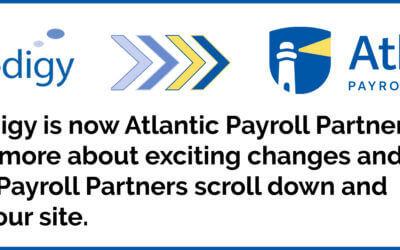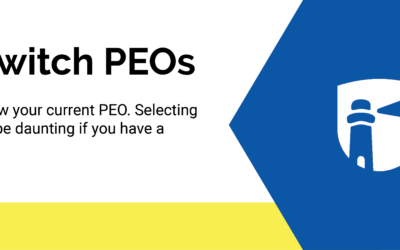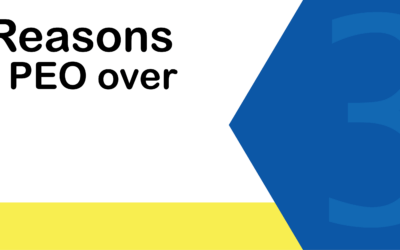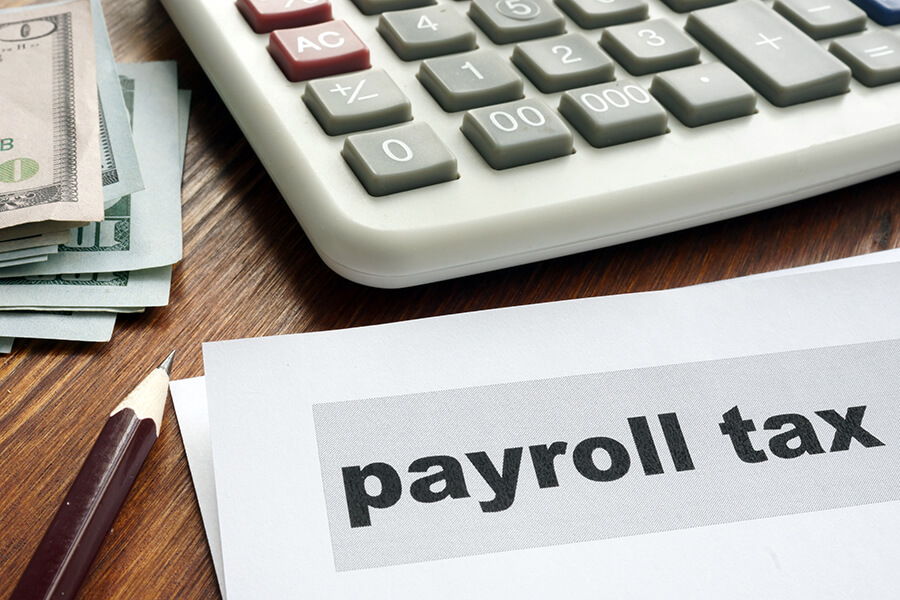Payroll Outsourcing…
In Bloomberg Tax & Accounting’s 2019 Payroll Benchmarks Survey, 69.2% of respondents said they used outside vendors to perform payroll functions, while only 30.8% said they did not outsource payroll.
Let’s look at the practical and financial reasons so many companies are taking the payroll outsourcing plunge.
Payroll compliance
Payroll laws are numerous in scope, occurring at the federal, state and local levels. Compliance depends on knowing which laws your business must follow, adhering to the rules that apply, monitoring regulatory changes, and updating your payroll policies and procedures accordingly. This can be stressful and time-consuming.
Moreover, failure to obey the rules can lead to steep fines from the government and even reputational damage to your company.
When you outsource payroll, the provider takes on many of your compliance responsibilities — giving you peace of mind and more time to focus on growing your business.
Accurate and timely payrolls
According to a market analysis by Beroe Inc., key performance indicators for payroll outsourcing include accuracy of pay slips and timely processing of payrolls.
Further, a survey by the Workforce Institute shows that employees don’t have much patience when it comes to paycheck errors, as 49% of respondents said they will look for another job after only two payroll mistakes.
Payroll outsourcing companies have experts on hand who understand the ins and outs of gross-to-net calculations — which are crucial to paycheck accuracy. Also, their job is to make sure their clients’ payrolls are done on time.
Self-service features
Employees today want immediate access to payroll information and expect their employers to provide self-service options. This is likely why 73% of respondents in the Bloomberg survey said they had an employee self-service system for payroll.
Besides processing their clients’ payrolls, many reputable payroll companies provide access to a self-service platform that lets employees:
- Make basic payroll changes, such as those to their direct deposit and Form W-4.
- Send time-off requests to their supervisor or manager.
- View and print payroll tax documents, such as Form W-2.
- Update personal contact information.
- Review pay data.
- Print pay stubs.
Disaster recovery
As demonstrated by the COVID-19 pandemic, employers should be prepared for unexpected or severe disruptions to their businesses. Credible payroll providers already have a contingency plan in place that can ensure your employees are paid on schedule during disasters and emergencies.
Cost savings
Outsourcing your payroll can save you time and money via direct and indirect ways — including by keeping your business compliant, minimizing paycheck mistakes, delivering access to self-service technology and helping you meet your payroll obligations in the face of disasters. Importantly, you can lower payroll staffing costs, as you don’t have to pay wages, salaries, overtime and benefits to a full in-house team.
Though exact savings depend on various factors, the report by Beroe Inc. states that outsourcing payroll can reduce expenses by approximately 20%. Want to start saving on your payroll? Get started with a quote.
Copyright 2024
Want more? Subscribe to our blog.
Why Atlantic Payroll Partners
The biggest payroll companies probably won’t have time for your business. It’s that simple, you’ll be a number. At Atlantic Payroll Partners, you’ll be the opposite. We’ll know more than your name; we’ll know the names of your children and their birthday’s as well. We will know you.
We’ve been helping Florida business by managing their payroll and providing workers' compensation quotes for ten years. We help keep payroll cost affordable by provided transparent PEO payroll quotes that allow you to plan your budget accordingly. Like the big payroll companies, you can manage your payroll and payroll timekeeping with us, while reaping the benefits of PEO risk management.
Thinking about payroll outsourcing can be scary. Make sure you know what to expect from payroll outsourcing providers; to make the best decision for your business. In addition to offering payroll, and workers' comp quote we offer: Human Resource consultations, Accounting services, and benefits such as, 401ks and Healthcare plans.
Thinking about living life on edge? What happens if you don’t pay your payroll taxes? We’re breaking down 5 ways that the IRS makes you pay your payroll taxes. The Internal Revenue Service aggressively collects delinquent payroll taxes, and it has the authority to do just about anything to collect them. Here are five of the most aggressive tactics the agency uses:
Shut you down.
The IRS can lock your doors and shut down your business until you pay, without even getting a court order. It can also contact your customers, notify them that you’re a delinquent taxpayer and instruct them to send payments on their accounts to the IRS instead of to you.
Raise your borrowing costs.
If the IRS puts a lien on your business, your lending risk dramatically increases. Imagine, you were to file bankruptcy with an IRS lien, the IRS gets paid first, before any other creditor gets any money. If you have factoring agreements, your lender might cancel your contract because it becomes a secondary creditor behind the IRS.
Penalize you multiple ways.
The IRS assesses more than one penalty when you don’t pay your payroll taxes. If you don’t file, you’re assessed a “failure to file” penalty. When you don’t deposit the money within three days, you’re assessed a “failure to deposit” penalty and a “failure to pay” penalty. If you haven’t paid your payroll taxes 16 days after they were due, you now owe an additional 33 percent of your tax bill in penalties, but that’s just the beginning.
You can very easily double your tax bill with cascading penalties. Suppose you:
- Missed a $5,000 deposit for Week 1
- You make the Week 2 and Week 3 payments on time.
First, you’re assessed penalties for Week 1. When you pay Week 2, it’s applied to the Week 1 shortfall and then you’re assessed penalties for Week 2.
The same thing happens with Week 3 and your penalties cascade until you make up the past-due amount.
Try to put you in jail.
It’s a federal crime not to pay your payroll taxes. It’s also a federal crime to borrow money from the trust and spend it on general business expenses.
The IRS can send your case to its criminal investigations division and to the Justice Department for criminal prosecution, particularly if it believes you willfully and knowingly violated the law. You can be liable for fines and you can go to prison.
Seize your personal assets.
You’ve probably protected your personal assets from claims made against the company through a limited liability company, a limited partnership, a corporation or another organizational structure. Guess what?
There is no liability protection from the IRS. You’re personally responsible for the payroll taxes your company owes, and the IRS can seize your personal assets to collect them.
If you have a second signer on your payroll checks, they’re also personally responsible for the delinquent taxes and the IRS can seize their personal property as well.
If you fall behind on your payroll taxes, seek advice from experts who know the law, are familiar with the IRS’s collections tactics and know the right options you should pursue.
For example, an installment agreement is usually preferable to an offer in compromise, because the IRS rejects most offers in compromise.
Tax laws and tax rules are constantly being updated and interpreted. This article contains general information, so please discuss your individual situation with a trusted tax adviser before making tax decisions.
Copyright 2024
Why Atlantic Payroll Partners
The biggest payroll companies probably won’t have time for your business. It’s that simple, you’ll be a number. At Atlantic Payroll Partners, you’ll be the opposite. We’ll know more than your name; we’ll know the names of your children and their birthday’s as well. We will know you.
We’ve been helping Florida business by managing their payroll and providing workers' compensation quotes for ten years. We help keep payroll cost affordable by provided transparent PEO payroll quotes that allow you to plan your budget accordingly. Like the big payroll companies, you can manage your payroll and payroll timekeeping with us, while reaping the benefits of PEO risk management.
Thinking about payroll outsourcing can be scary. Make sure you know what to expect from payroll outsourcing providers; to make the best decision for your business. In addition to offering payroll, and workers' comp quote we offer: Human Resource consultations, Accounting services, and benefits such as, 401ks and Healthcare plans.
“Hazard Pay” has been one of the top terms of 2020, right after, “Stay Home”. So, what are the rules for hazard pay anyway.
The U.S. Department of Labor defines hazard pay as “additional pay for performing hazardous duty or work involving physical hardship.” Per the DOL, physical hardship is work duty that leads to extreme physical discomfort and distress that is not properly alleviated by protective equipment.
Are employers required to give hazard pay?
The Fair Labor Standards Act — which is the primary federal law that governs wage-and-hour standards for most private-sector jobs — does not require hazard pay. However, other federal regulations require hazard pay for federal workers who perform specific types of dangerous work.
Although no state law currently requires hazard pay for private-sector employees, a few local governments mandate hazard pay for some government workers. Moreover, in response to the COVID-19 pandemic, some private-sector employers have chosen to provide hazard pay.
In an April 2020 poll by WorldatWork, “26% of surveyed employers said they are planning to provide hazard pay” to employees who work on-site during the COVID-19 pandemic. Those who aren’t planning to provide hazard pay said they will instead offer perks such as meals and day care options.
Who normally gets hazard pay?
A list of hazardous work for federal employees can be found in the Code of Federal Regulations, Appendix A to Subpart 1 of Part 550.
With regard to COVID-19, “essential frontline workers” are the most likely to get hazard pay. These are employees who work in essential industries and must physically show up for work, even during a pandemic.
What legally constitutes “essential frontline workers” for COVID-19 purposes is decided by federal, state or local legislators. That said, “essential frontline workers” usually include:
- Health care workers, such as doctors, nurses and emergency responders.
- Pharmacists.
- Firefighters.
- Postal service workers.
- Law enforcement members.
- Grocery store workers.
- Food processors.
- Delivery drivers.
- Maintenance workers.
- Warehouse workers.
In terms of COVID-19, offering hazard pay makes sense if employees’ jobs put them at a high risk of contracting the virus. As noted in an article published by the Society for Human Resource Management, “Hazard pay might be a good choice for public-facing jobs, where employees may not be able to observe social distancing.”
Employees who work from home are in low-risk environments. They are not essential frontline workers, so there’s no legitimate reason for giving them hazard pay.
What is the rate of hazard pay — and how long does it last?
For federal employees, additional pay for hazardous work cannot be more than 25% of the employees’ base pay. Private-sector employers set their own hazard pay rates, usually as cash incentives or spot bonuses. According to media reports, some restaurant and grocery store workers have received an extra $2 or $3 per hour in hazard pay.
Hazard pay can be short term, with a specific ending date, or it can be ongoing, with no expiration date. Some employers keep providing hazard pay as long as sales remain strong or until the threat or risk of exposure significantly declines.
To avoid discrimination claims, employers that give hazard pay should apply the policy consistently across all similarly situated employees.
Copyright 2024
Why Atlantic Payroll Partners
The biggest payroll companies probably won’t have time for your business. It’s that simple, you’ll be a number. At Atlantic Payroll Partners, you’ll be the opposite. We’ll know more than your name; we’ll know the names of your children and their birthday’s as well. We will know you.
We’ve been helping Florida business by managing their payroll and providing workers' compensation quotes for ten years. We help keep payroll cost affordable by provided transparent PEO payroll quotes that allow you to plan your budget accordingly. Like the big payroll companies, you can manage your payroll and payroll timekeeping with us, while reaping the benefits of PEO risk management.
Thinking about payroll outsourcing can be scary. Make sure you know what to expect from payroll outsourcing providers; to make the best decision for your business. In addition to offering payroll, and workers' comp quote we offer: Human Resource consultations, Accounting services, and benefits such as, 401ks and Healthcare plans.





